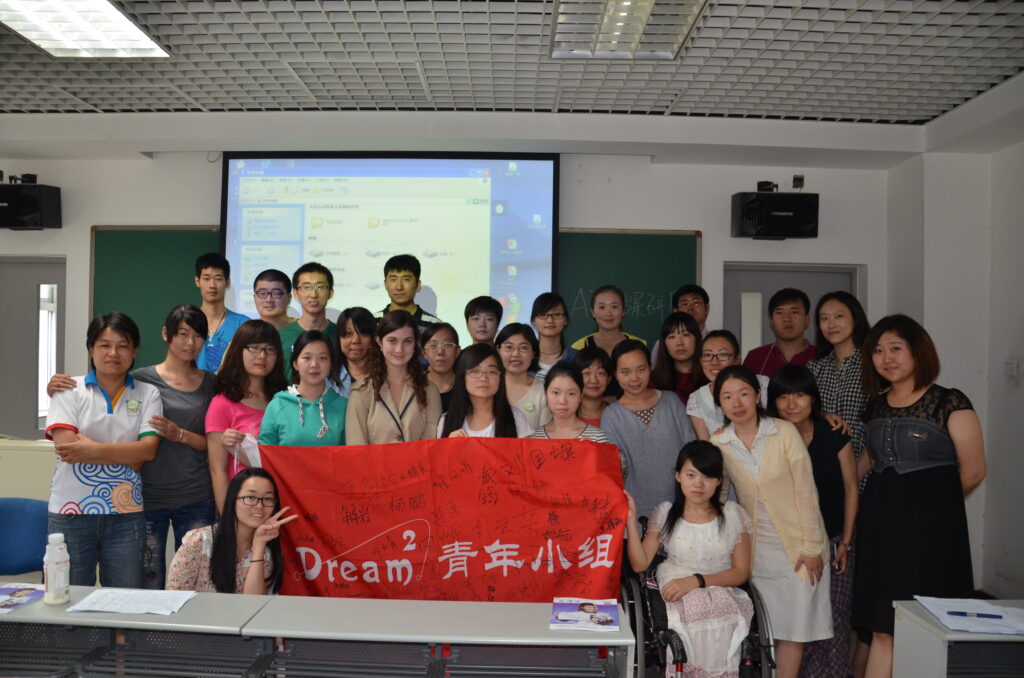
Meghan Hussey has been successfully applying for competitive fellowships for over a decade. She applied to be a Bezos Scholar while still in high school, proposed a Fulbright research project in China after getting her undergraduate degree, spent a year doing ground-based community work as a Carman International Fellow in Tanzania, and then received a fully-funded master’s degree as a Mitchell Scholar at Trinity College Dublin. Given the richness and diversity of her fellowship experience, we were more than excited to hear from Meghan on how different fellowships have influenced her career journey – and how she made the most of each experience to pursue her passion for inclusive education.
Your first fellowship was as a Bezos Scholar while you were still in high school. Can you tell us about it?
I applied to the Bezos Scholars program after being urged by one of my high school teachers. The application process was relatively straightforward. I had to write a few essay responses and provide recommendations and my high school transcripts. I also had a phone interview when I became a finalist. The most defining feature of the Bezos Scholar process was to be able to articulate what I would want to do to create my own Ideas Festival in my community when I returned home after attending the Aspen Ideas Festival.
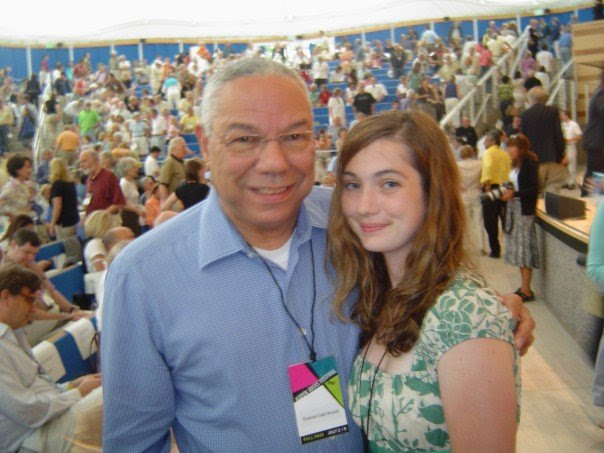
There are a lot of components to the Bezos Scholar program. What did you find most helpful?
The big experience with the Bezos Scholars program was the opportunity to attend the Aspen Ideas Festival for a week over the summer. Not only were we able to attend different sessions with all the attendees, but we also had small group discussions with social change makers and civic leaders, such as Colin Powell, Supreme Court Justice Steven Breyer, Phylicia Rashad, and many more. As a rising senior, being able to ask questions and interact directly with these luminaries was incredibly inspiring. We then were able to apply for a small grant to do our own “Ideas Festival” in our community. Mine focused on global issues such as human trafficking, global health, and genocide. It was a defining experience for me to be supported in being able to raise awareness on issues important to me, and helped me see myself as a changemaker.
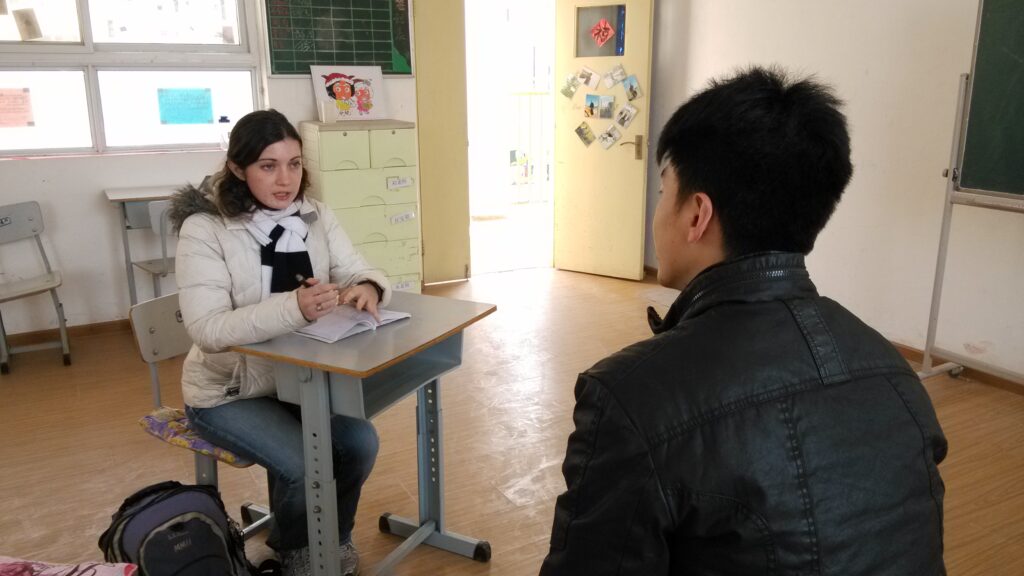
After you graduated from the University of Pennsylvania, you went on to become a Fulbright Research Fellow. Can you tell us about that?
I decided to apply for a Fulbright after returning from a semester studying abroad in Beijing at Beijing Normal University. During my study abroad, I had a volunteer internship with a local Chinese disability rights organization through a class I was taking, and I became intensely interested in and involved in that community. It was the first time I combined my academic and professional interest in global human rights and my personal experience growing up with a sibling with a disability.
For those interested in applying for Fulbright research programs, my first piece of advice is to do research on the specific country you would like to apply to. Different countries have different requirements around criteria, such as language proficiency and the type of organizations that you can affiliate with or be hosted by, and it’s critical to know that from the beginning.
The second piece of advice is to use your network from study abroad or college classes to find your host affiliation. It was a professor I had met during my study abroad that put me in touch with her colleagues at Beijing Normal University, who agreed to write my invitation letter to be hosted there.
Finally, for research fellowships, there are often two essays: one research proposal and one personal statement. The research proposal is your opportunity to express why your project is interesting and important and articulate your clear plan for carrying it out. The personal statement is your opportunity to share your story and help the committee understand why you, as an individual, are the best person to carry out this project.
During your Fulbright, you conducted interview- and observation-based research into services for autistic youth and adults in China. What motivated you to carry out this project, and what did you learn?
Since my sister is autistic and was aging out of the school system at the time, I decided to focus my Fulbright research on education and services for autistic youth and young adults in China. I also noticed there was a gap in the literature on autism in China. Most research on the topic at the time had focused on early intervention and young children. I learned an incredible amount from my year, thereby having the privilege of being able to focus intensely on the topic and getting to immerse myself in organizations, family support groups, social businesses, and schools. Since I spent so much of my time observing and listening, I got to really understand how complex and layered the issues were.
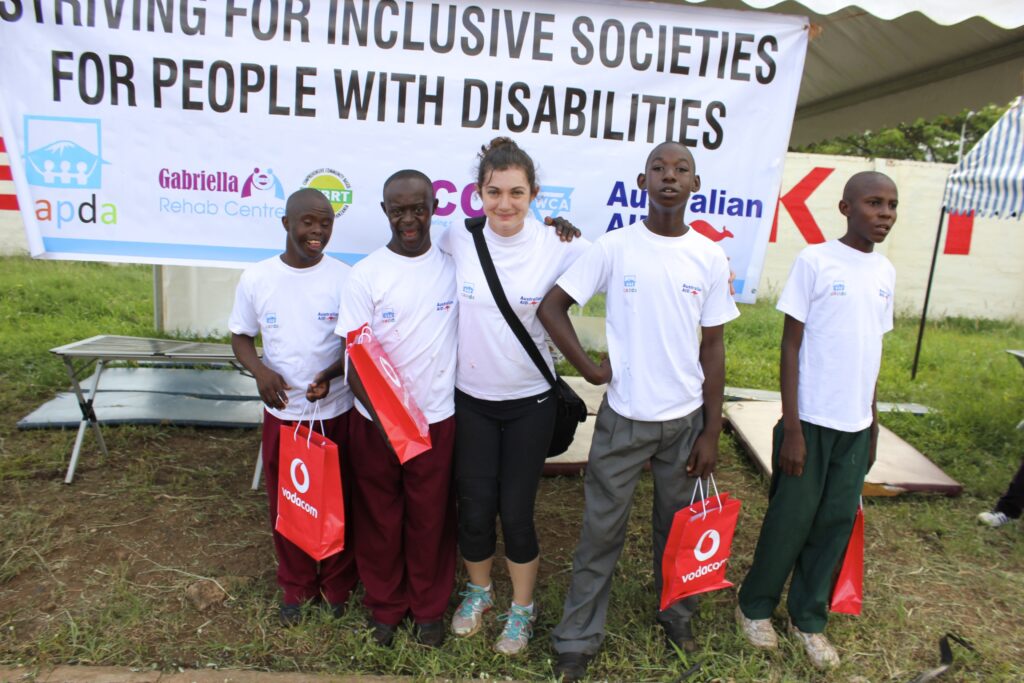
After the Fulbright, you served as a Carman International Fellow with Mosaic. What were some takeaways from this?
When I finished Fulbright and went to Tanzania for my fellowship with Mosaic, I was most excited about having the opportunity to move out of pure research and more into a practitioner role. In China, I was sometimes frustrated that, as a researcher, I felt like I couldn’t do as much to improve the situation as I wished that I could tangibly. During my time as a Carman International Fellow, I was working directly with a small grassroots Tanzanian NGO that was running community-based services for children and youth with intellectual/developmental disabilities and their families.
My biggest highlight from my year there was helping the NGO I was with start a young adult transition program since we noticed many of the original children they served had grown up and needed opportunities for vocational training and employment. I love seeing pictures from the activities, like the small farm and recycled paper greeting card coop that we started. There were many times that the work was incredibly challenging, and I got to understand just how complicated taking ideals from policy and putting them into practice can be. However, I could not be more grateful to have this perspective now that I work in Washington, DC.
Your most recent fellowship experience was as a Mitchell Scholar at Trinity College Dublin, where you received a master’s degree in global health. What attracted you to this program at this point in your career?
While in China, I met a professor from the Centre for Global Health at Trinity College Dublin who was visiting and giving a talk on disability-inclusive international development in a Special Education class I was taking at Beijing Normal University. It was the first time I had heard an academic really speak to my particular interests. We kept in touch, and I also started learning about how much more disability-inclusive the global development sector was in Ireland. It became clear that going to Ireland and Trinity specifically would be the best next step for me in terms of finding a match for my goals in a graduate program. That is what I emphasized when applying to the Mitchell Scholarship program. The Mitchell Scholarship values academics, leadership, and service, but it is also critical when applying that you have a clear reason for why you see studying in Ireland specifically as being a part of your professional and personal journey.
Personally, I’m glad I waited and didn’t apply to the Mitchell while I was still in college because I had not yet really solidified and demonstrated my interest in and commitment to disability-inclusive development. The fact that I had two years to really explore and dedicate my time to that field meant that I had a much clearer understanding of my goals in both the application and going into my master’s program.
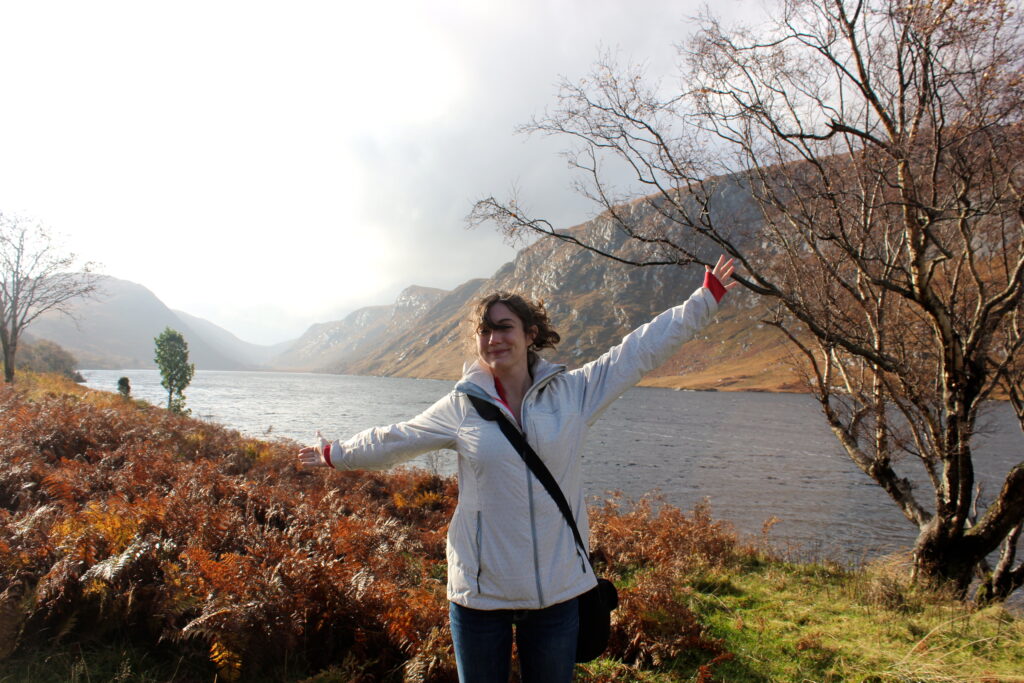
Describe for us a few highlights of the Mitchell Scholar experience. What did you find especially valuable to your later career?
My year as a Mitchell Scholar was an incredible learning experience. Academically, I learned a lot and had the ability to apply my specific interest in disability to my research papers within both my core classes and electives. The highlight academically for me was getting to write a dissertation. I was able to use some of my scholarship support to spend 5 weeks in South Africa doing field research on the implementation of the UN Convention on the Rights of Persons with Disabilities there. I could ultimately use that research for two academic publications as well.
Outside of the classroom, the Mitchell program director also supported me in getting an internship for the academic year with the Europe-Eurasia office of Special Olympics, which was also in Dublin. Having been involved with the Special Olympics with my family since I was a child, this was an invaluable experience for me to get to know this large international movement at an organizational level. Those connections and that experience ultimately helped me when I moved back to the United States, and I ended up working for Special Olympics International HQ in Washington, DC, for 6 years.
Having participated in 4 different fellowship programs, can you share general advice for others looking to apply for multiple fellowships?
My most significant piece of advice is not to be afraid to put yourself out there and apply. It may be tempting to look at admissions statistics and convince yourself that it’s a waste of time. However, you will learn so much about yourself just by filling out the application. Writing a personal statement is such a good opportunity to reflect on your personal and professional experiences and to define your goals. I think the best fellowship applications are where your individuality and genuine passion for your area of interest shine through. This will serve you well even if you do not get the fellowship.
The second piece of advice I have is to ask for help. Even if you have already graduated, seek out college fellowship offices or old professors and mentors who can provide meaningful feedback on your personal statement and help you prepare for interviews.
Also, say “yes” to different opportunities that come up during your fellowship as much as possible. Particularly for fellowships abroad, it can be difficult to be out of your comfort zone. Saying “yes” to different chances to engage with your host community, whether that is going hiking with classmates, celebrating local holidays with friends, or volunteering with local organizations, will make your year more enriching and memorable. Don’t forget to enjoy the experience of getting to know the other members of your fellowship cohort if you have one. I have made lifelong friends through my different fellowships, even with those whose fields of study were completely different from mine. These relationships are not only great for a professional network but a great personal support system during your fellowship year and beyond.
And finally, how do you think participating in multiple fellowships has impacted how you work or view the world?
My fellowship experiences really laid the foundation for my career by providing me with a variety of different kinds of experiences. I had an area of interest that was considered “niche” when I was getting ready to graduate college, and fellowships provided me a way to get experience in that while still being able to support myself. I draw on the perspectives I gained from researching and working at the grassroots levels in different cultural contexts every day now that I’m working at a large international development agency.
Inspired to start pursuing multiple fellowships? Sign up for a free ProFellow account to explore 2,600+ professional and academic programs today!
Meghan Hussey is an Inclusive Education Specialist at the 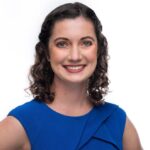
© 2024 ProFellow, LLC. All rights reserved.